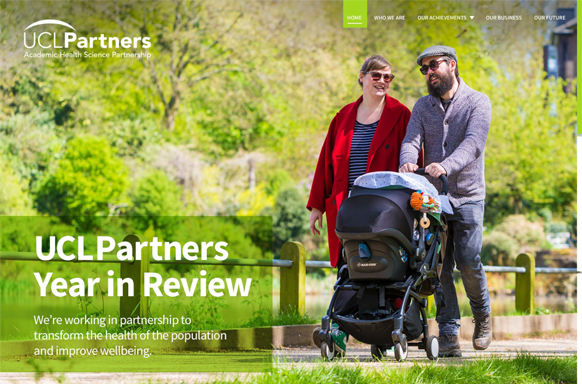Year in Review 2017/18
6 July 2018
We are proud to present our Year in Review for 2017/18, which highlights a range of achievements from across the partnership in the last year.
By working in partnership with healthcare staff and academics within our geography, our efforts have continued to make a real and lasting difference to people’s lives.
The review includes a brand-new animation and a variety of case studies.

Achievements showcased in the review include:
- 1,242 organisations across the country are using innovative new products, services and devices as a result of support from the NHS Innovation Accelerator, hosted by UCLPartners
- £30 million funding awarded to six sites across the UK (including London) by Health Data Research UK, to address challenging healthcare issues through use of data science
- Supporting work to link health and care information across East London which aims to improve the flow and delivery of care to patients
- Work with our local Sustainability and Transformation Partnerships to further develop the skills to work collaboratively, across multi-disciplinary teams
- 670 mobile electrocardiogram devices have been distributed in the partnership, helping to increase detection of AF and prevent strokes
- Supporting a 40% reduction in unplanned hospital admissions for care home residents, resulting from a pilot scheme championing multi-disciplinary care in East London
- £5 million funding awarded for an NIHR Mental Health Policy Research Unit hosted by one of our partner universities, bringing researchers, clinicians and service users closer together
- Reduced patient deaths caused by acute kidney injury and sepsis by 47% and 24% respectively, resulting from two patient safety improvement collaboratives